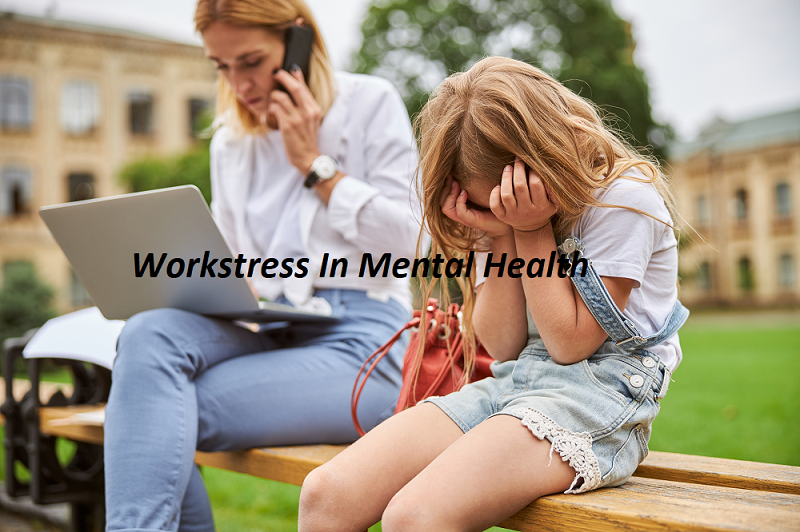In terms of mental health, how do you deal with work stress? When you’re the boss and your mood is out of control, what do you do?
Adverse Effect Of Work stress
Work stress can result in depressive symptoms, lower mental health, increased absenteeism, and increased use of drugs and alcohol.
Over two-thirds of workers in the United Kingdom have suffered from adverse effects of work pressure in their working years.
Workplace stress has a high prevalence in industries with high amounts of pressure, such as the public sector and professions involving driving and engineering.
Symptoms Of Work stress
Work-related events that can lead to depressive symptoms and non-office lethargy may have a negative impact on productivity. Such events include being late, suffering from forgetfulness, becoming easily agitated, or losing your temper.
It also occurs at work, and most employees are unable to deal with pressure well, some may not be able to handle such events. Such associations may be the cause for under-reporting or even under-qualification in some cases.
Some of the most common and time-consuming adverse effects of work stress include:
- gastrointestinal complaints
- cardiovascular disease
- sleep disturbance
- gastrointestinal complaints
- chest pain, palpitations
- dizziness
- Hair loss
- Tardiness
- Exhaustion
Employers should do while in work stress
Employers can address and reduce excessive work stress by different levels. May arrange training for supervisors on effective ways to decrease stress and should connect clearly and manage conflicts respectfully. They can identify and use employees’ strengths and skills for career development.
Employers should arrange to ensure safe work conditions and work-life balance; Besides they can build in opportunities to formally recognize team goals; They also can create a work climate that encourages social support to each other. Employers can perform stress screenings and information on stress reduction as well as arrange for the early warning signs for mental health.
Effective intervention programs for stress management, such as cognitive-behavioral therapy;
Programs that effectively address stress, such as mindfulness, relaxation, yoga, and tai chi; and programs that encourage exercise, emphasizing the importance of mental and physical health.
Encourage employees to maintain contact with their superiors and coworkers. Recently rich authorities of employment maintain mobile stress management apps that will offer employers cost-effective options for reducing workplace stress. Encourage employees to maintain contact with their superiors and coworkers. Consider ADA adjustments to help people stay on the job and develop effective transition and return to work policies and practices.
How Does Work Stress Affect Mental Health?
How does work stress affect mental health?
Stress at work is a very serious problem for people and can lead to significant emotional problems.
It is usually the case that workers are at increased risk of suffering from both physical illnesses and mental illnesses.
Jobs that don’t drug test tend to be those that are not safety-sensitive. For example, Target only tests for safety-sensitive jobs such as security guards.
How To Reduce Work Stress
If you don’t deal with work stress well, you risk burnout. This should not be the case and should take you over the edge by how to reduce work stress efficiently. Consider a time when you were under tremendous stress and everything seemed to just flow effortlessly. This is because stress is also beneficial and can lead to higher motivation, better performance, more job satisfaction.
So how can you deal with stress in the workplace? First, identify what is causing it.
For most people, this comes from the “I am too busy” excuse we all use to justify taking less time at work.
However, if this excuse is getting you down and you don’t have time for yourself, then you are in the wrong job.
You need to make sure that you take your breaks and take some action planning to relieve your stress.
For most people, their jobs involve meeting and talking with multiple people so they are very susceptible to social media stress. Check it out.
Workplace social media stress is caused by working in an environment where 90% of your time is spent communicating with your co-workers through social media sites such as Facebook or MySpace.
In fact, this is one of the main causes of work stress because you are always feeling like you have to show up for work.
Instead of having conversations with your coworkers through your phone, set up email accounts for work.
Bottom Line
Recently excessive workplace stress happens staggering a lot of deaths and even suicide. It results in billions of dollars in health care costs every year. This accounts for 5% to 8% of the national healthcare cost and is mostly due to excessive job demands, a lack of insurance, and work-family conflict. Actually, company goals should not be perceived as exceedingly difficult, rather than achievable challenges. Because they are also factors in excessive stress & anxiety.













